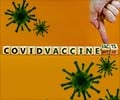Indian Public Health System
India has a constitutional division of legislative responsibilities between the central government and the states. Both the central government and the state governments are constitutionally empowered to legislate on matters of public health.
Epidemic Diseases Act 1897
The preamble states that its objective is to provide for better prevention of the spread of dangerous epidemic diseases. It empowers the state governments and the central government to take measures as may be warranted or necessary to control the further spread of disease.
1. Central Acts
-When the Central Government is satisfied that
India or any part thereof is visited by, or threatened with, an outbreak of
any dangerous epidemic disease and that the ordinary provisions of the law
for the time being in force are insufficient to prevent the outbreak of
such disease.
Powers of Central Government - In particular and without prejudice to the
generality of the foregoing provisions, the [State Government] may take
measures and prescribe regulations for-
1. Inspection -
a) the inspection of persons travelling by railway or otherwise, and
the segregation, in hospital, temporary accommodation or otherwise, of
persons suspected by the inspecting officer of being infected with any such
disease
b) the Central Government may take measures and prescribe regulations
for the inspection of any ship or vessel leaving or arriving at any port in
[the territories to which this Act extends] and for such detention thereof,
or of any person intending to sail therein, or arriving thereby, as may be
necessary.
2. Protection to persons acting under Act - No suit or other legal proceeding shall lie against any person for anything done or in good faith intended to be done under this Act
3. Penalty - Any person disobeying any regulation or order made under
this Act shall be deemed to have committed an offence punishable under
section 188 of the Indian Penal Code (45 of 1860). When at any time the
government may determine in what manner and by whom any expenses incurred
(including compensation if any) shall be defrayed.
A) Disobedience to order duly promulgated by public servant -
Whoever, knowing that, by an order promulgated by a public servant
lawfully empowered to promulgate such order, he is directed to abstain from
a certain act, or to take certain order with certain property in his
possession or under his management, disobeys such direction, shall, if such
disobedience causes or tends to cause obstruction, annoyance or injury, or
risk of obstruction, annoyance or injury, to any person lawfully employed,
be punished with simple imprisonment for a term which may extend to one
month or with fine which may extend to two hundred rupees, or with both;
and if such disobedience causes or trends to cause danger to human life,
health or safety, or causes or tends to cause a riot or affray, shall be
punished with imprisonment of either description for a term which may
extend to six months, or with fine which may extend to one thousand rupees,
or with both.
Explanation - It is not necessary that the offender should intend to
produce harm or contemplate his disobedience as likely to produce harm. It
is enough that he knows of the order which he disobeys, and that his
disobedience produces, or is likely to produce, harm. Illustration An order
is promulgated by a public servant lawfully empowered to promulgate such
order, directing that a religious procession shall not pass down a certain
street. A knowingly disobeys the order, and thereby causes danger of riot.
A has committed the offence defined in this section.
B) Such offense, at the discretion of the trial magistrate, may be
tried summarily. No suit or legal proceeding lies against any person or
authority for anything done, or in good faith intended to be done, under
this Act.
Some of the issues that require revisiting, the act is the “definition of
epidemic disease, territorial boundaries, ethics and human rights
principles, empowerment of officials, [and] punishment.” National Centre
for Disease Control is developing a “Public Health Emergencies
Act,”.
2. Indian Penal Code: Section 270-
Malignant act likely to
spread infection of disease dangerous to life.-Whoever malignantly does
any act which is, and which he knows or has reason to believe to be, likely
to spread the infection of any disease dangerous to life, shall be punished
with imprisonment of either description for a term which may extend to two
years, or with fine, or with both.
3. MCI Ethics Regulation 7.14:
Patience, Delicacy and Secrecy:
Patience and delicacy should characterize the physician. The registered
medical practitioner shall not disclose the secrets of a patient that have
been learnt in the exercise of his / her profession except –
i) in a court of law under orders of the Presiding Judge;
ii) in circumstances where there is a serious and identified risk to a
specific person and / or community; and
iii) notifiable diseases. In case of communicable / notifiable diseases,
concerned public health authorities should be informed immediately.
In such instance, the physician should act as he would wish another to act
toward one of his own family in like circumstances
4. Quarantine of Visitors:
With respect to Ebola, in early August 2014, the Health
Ministry announced that “mandatory self-reporting is required at
immigration.” For people entering India from abroad, a health officer
appointed by the central government is posted and empowered at the port of
entry.
- The health officer may demand to see the aircraft journey logbook, which shows the places the aircraft visited. He may also inspect the aircraft, its passengers, and its crew, and subject them to medical examinations after their arrival.
- The officer must follow specific precautions about communicable
diseases that require a period of quarantine (such as
yellow fever , plague, cholera, smallpox, typhus, and relapsing fever) and other infectious diseases that do not require a period of quarantine - He may prohibit the embarkation on any aircraft of any person showing symptoms of any quarantinable disease and any person whom the health officer considers likely to transmit infection
- Regulations require that airline staff report any suspected cases or passengers who in their opinion, from observations made in flight, may be suffering from symptoms of a quarantinable disease.
5. Right to move free
Quarantine affects the fundamental right “to move freely throughout the
territory of India.” However, this right is subject to reasonable
restrictions that the state may impose in the interest of public
health.
6. Right to privacy
The Supreme Court of India has found that
the right of privacy is an essential component of the right to life, but
that it is not absolute and may be restricted to prevent crime or disorder,
or to protect health, morals, or the rights and freedom of
others.
State Acts
Epidemic Diseases Act gives wide ranging powers to the states. The states,
in such emergencies, delegate some of these powers to the deputy
commissioners in the districts typically through state health acts or
municipal corporation acts.
1. State and Municipal Governments
- A state government may also take measures and prescribe regulations for the inspection, vaccination, and inoculation of persons traveling by road or rail, including their segregation in a hospital, temporary accommodation, or otherwise, if such persons are suspected by the inspecting officer of being infected with any such disease.
- A state government, by general or special order, may also empower a deputy commissioner to exercise, in relation to his district, all the powers under section 2 of the 1897 Act that are exercisable by the state government in relation to the state, other than to determine the manner in which and by whom any expenses are to be defrayed.
- Many of these powers are prescribed in Municipal Corporation Acts governing “major municipal areas,” or Public Health Acts that also provide municipal-level commissioners or collectors with quarantine or other powers. These can be in relation to removal of a person to separate premises for medical treatment, Cleansing or disinfecting any building or part of any building or any articles, taking special measures in case of the outbreak of dangerous or epidemic diseases
2. Civil Rights
The ambit of section 2 of the Epidemic Diseases Act
is wide enough to allow a state or a lower functionary in the
administration, in dealing with an emergency caused by the outbreak of a
dangerous disease, to seek or require the cooperation of the public or
corporate bodies in the public or private sectors. If the desired
cooperation is not forthcoming, a regulation may be imposed. Failure to
obey or comply with restrictions imposed by such a regulation constitutes a
punishable violation
3. Judiciary
The judiciary in India ensures transparency in
government actions and executive orders. One can seek judicial review of
executive orders and regulations. The Parliament of India has also enacted
a Freedom of Information Act, requiring transparency in government
actions.
International Regulations
Public Health Emergency of International Concern(PHEIC):
Mandates Reporting to WHO about Disease in Question.














